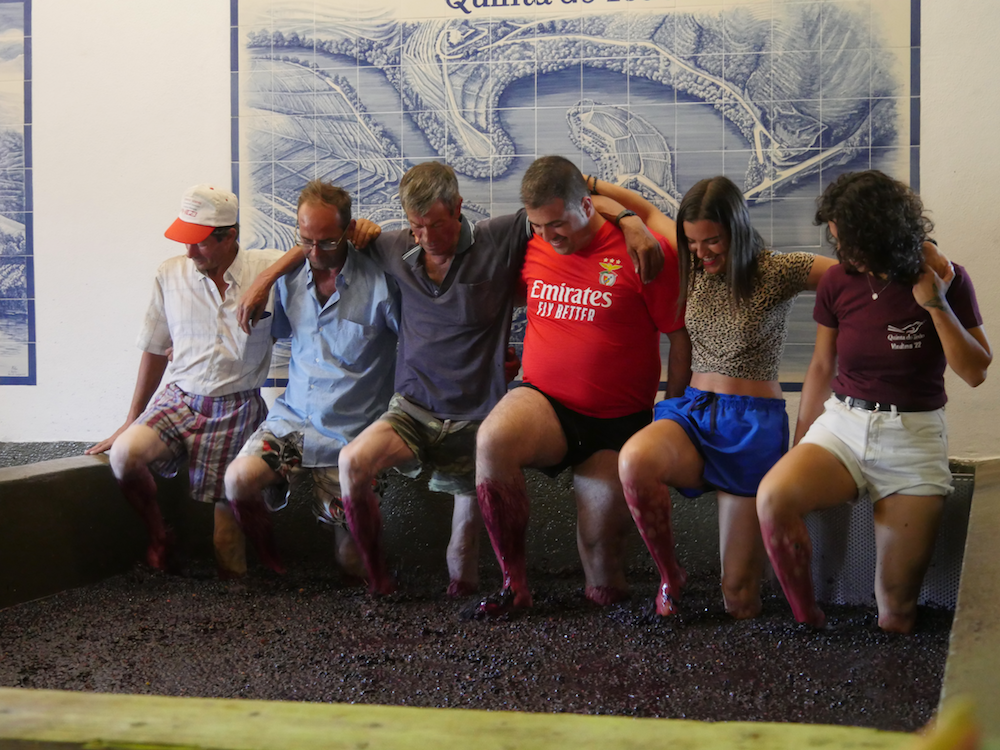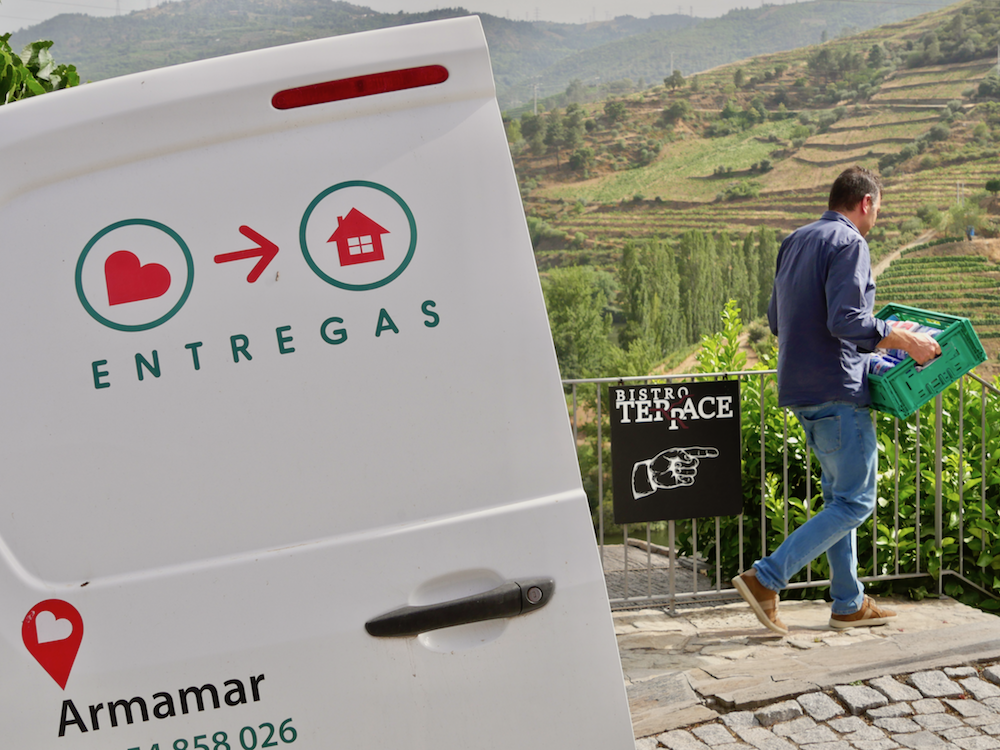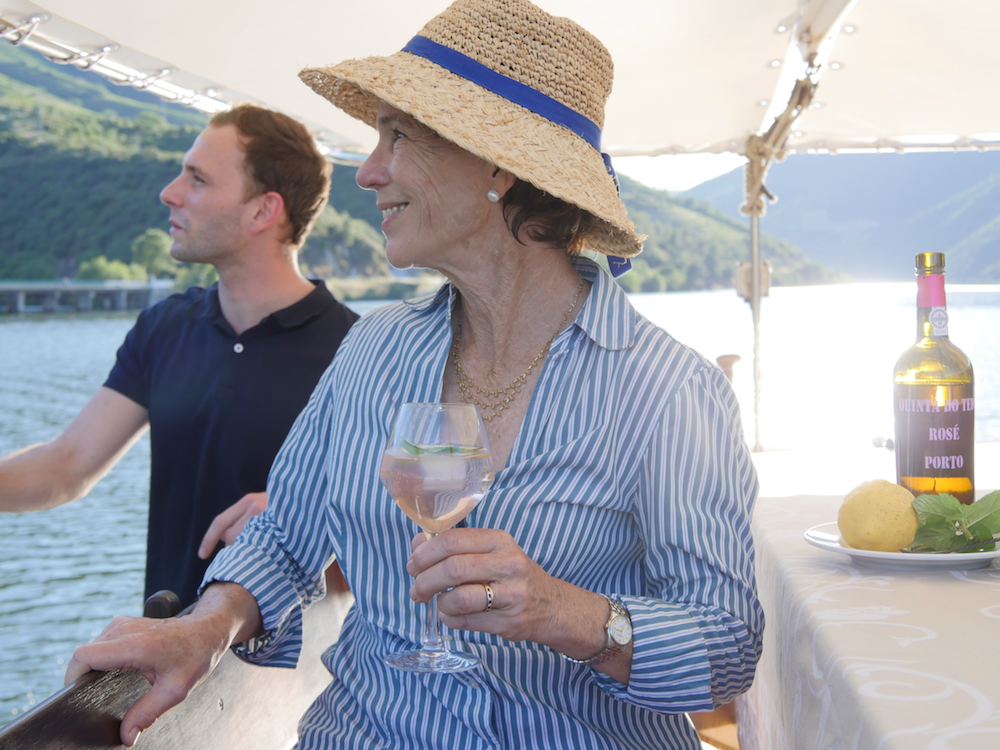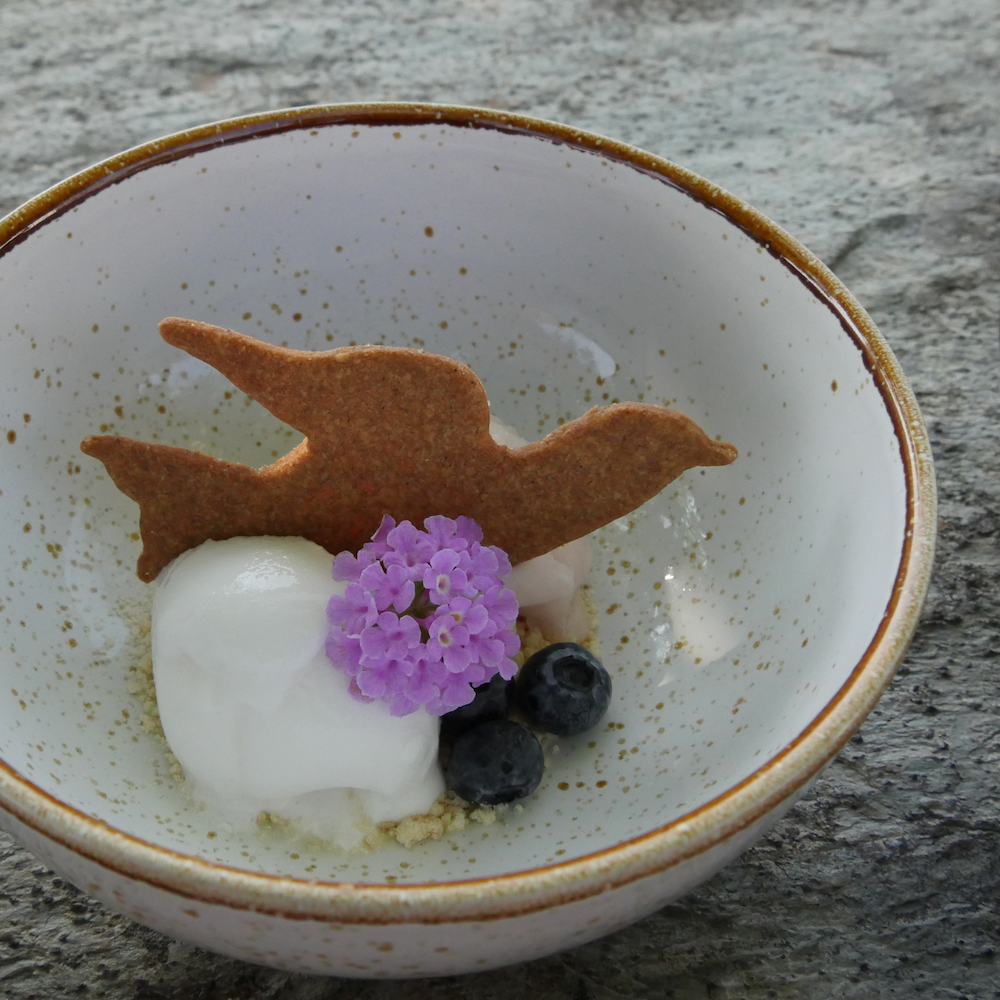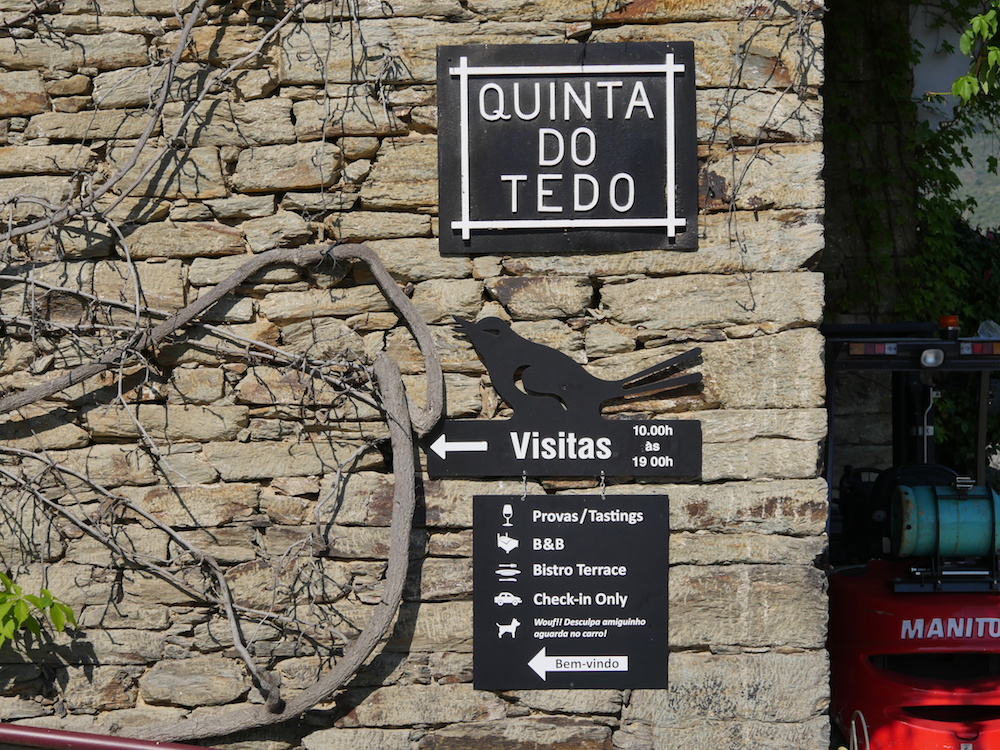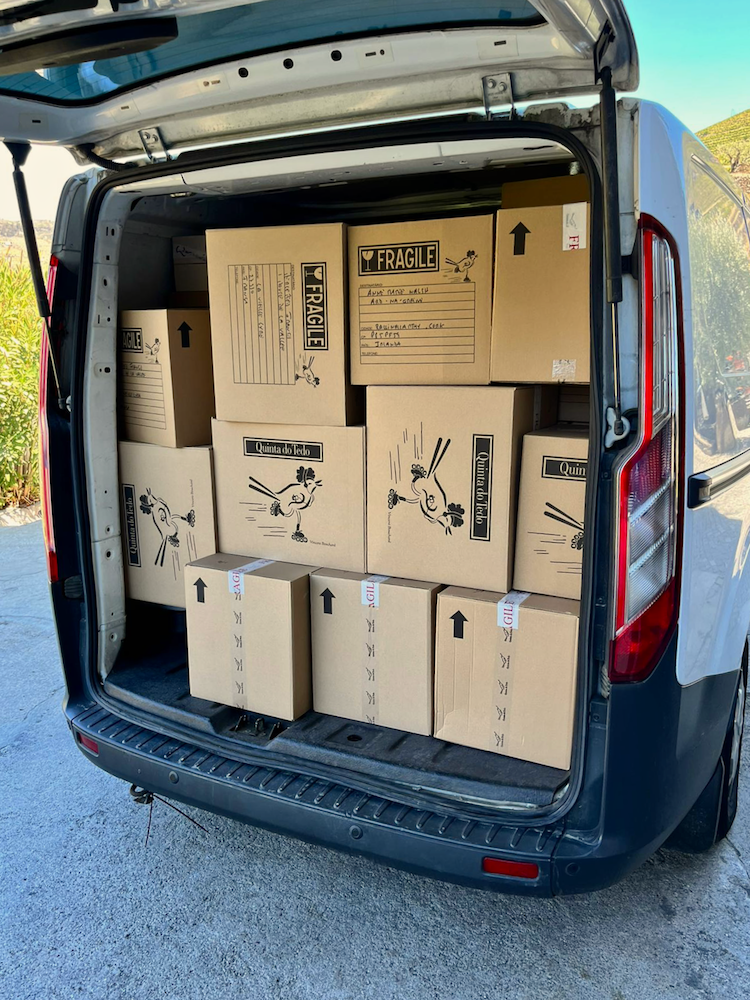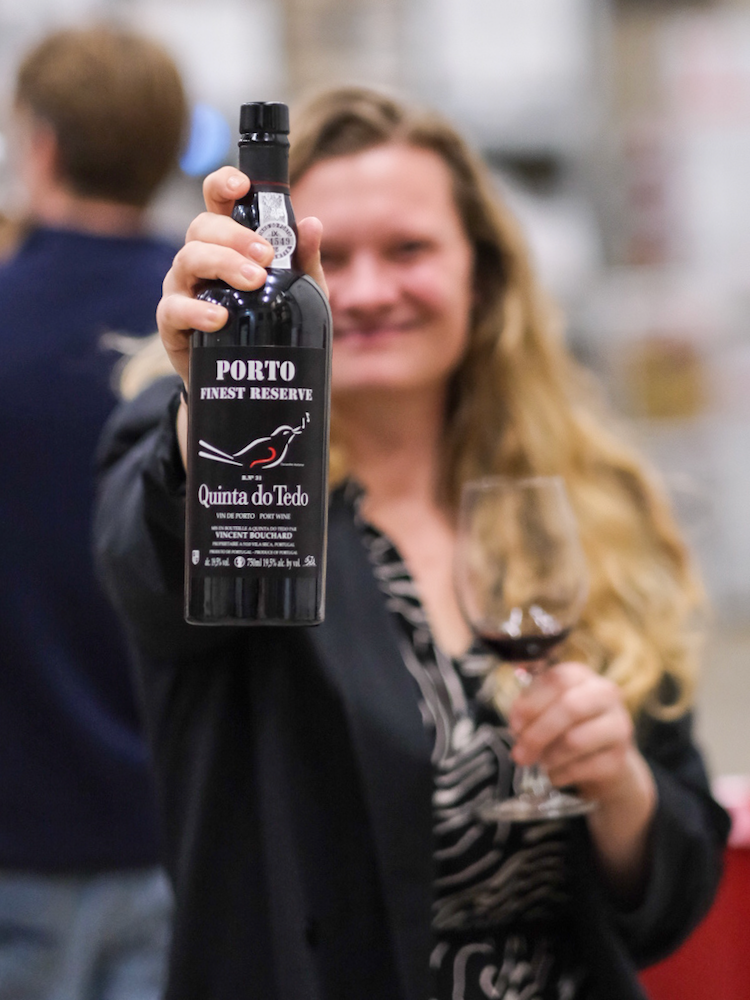Sustainability – not just a green buzzword at Tedo.
The words written by California’s Napa Valley Vintners trade association resonate with Quinta do Tedo's ethos (and not just because I am Californian!) - “…sustainable wineries and businesses are committed to continuing improvement in caring for the health of nature and the health of employees and community, which enhances the health and longevity of the businesses themselves.”
There are three pillars of sustainability – environmental protection, social equity, and economic viability – and how Tedo values and practices them is my blog's focus this month.
Environmental protection – take care of the land.
- Certified organic viticulture practiced since 2012, after a four-year conversion process (thanks to our visionary manager/winemaker Jorge Alves). No herbicides and pesticides in the vineyards = better health for consumers and the environment and thriving beneficial flora and fauna in our vineyards.
- Recent installation finished over the summer of 52 solar panels to produce 41 KW or 45% of electricity for Quinta do Tedo’s winery, workers’ lodging, B&B, and Bistro Terrace.
- Douro’s traditional polyculture system is sustained with citrus, fig, and almond trees, olive orchards, preserved “mato” (Mediterranean shrub), vegetable garden, and vineyards.
- Fermentation of Port wine with indigenous yeasts from our vineyards and very small or no addition of sulfites needed for preservation since the alcohol is high enough in the Port itself - remember, fortification (or the addition of neutral grape brandy to halt fermentation and increase alcohol potential) has since the 18th-century been the preferred method for preserving Port along its’ journey from Portugal to England.
- Preservation of our traditional 18th-century facilities and cellars that also have natural thermic regulation without the need for an energy-consuming cooling system.
- Choice of recycled styrofoam and recyclable cardboard wine shippers and a preference for lighter-weight bottles to minimize the carbon footprint of our international sales.
- Respect for tradition while incorporating modern innovation:
Our vineyards boast 21+ different traditional varieties and all but one Tinta Roriz (from upriver Duero in Spain, aka Tempranillo) are indigenous to Douro Valley. Our new vineyards are mechanized with a small tractor, our old vineyards are horse-plowed and all 14 hectares are manually pruned and picked.
Preservation of the traditional, labor-intensive, hand-built, dry schist walls to retain moisture in the vineyards.
Proud upkeep of foot-treading, considered by most Port houses as the best method for soft extraction of tannins and color from our grapes.
Social equity – believe in your employees, they sing our bird's song.
- Involvement and empowerment of our local community, with a team of 20+ locals in our tasting room, winery, vineyards, B&B, and Bistro Terrace. Intern lodging is on our premises.
- Collaboration with local suppliers and small business partners.
- Our staff is our “voice” when we are not here (Vincent and I are usually in California from December through May) and we are proud that they are passionate about what they do, and share the best Douro has to offer beyond our Quinta do Tedo - i.e. local museums and other restaurants, wineries, and hotels.
Economic viability – invest with a horizontal vision.
Wine tourism is a means of socio-economic development and resilience for the rural Douro region and community. Tedo’s comprehensive offer - agriculture, wine production, hospitality (B&B and Bistro Terrace), and diversified tourism experiences (gastronomy, history, wine, nature, sport) offers something for everyone, locals included. We provide more access points to attract different tourist types at different times of the year, which prolongs their stay and deepens their exploration of and connection to Douro and reduces seasonality in the tourism industry. Since COVID, national tourist numbers have increased – we are proud to have a diversified business strategy and cultivate Tedo Fans from near and far.
Word-of-mouth publicity is our greatest satisfaction - Tedo builds lasting relationships with brand-loyal customers who come back to buy and/or visit and/or order online. They share their experiences and our products via powerful, organic word-of-mouth marketing.
What goes around comes around - at Quinta do Tedo, we strive to share a slice of our sustainable life pursuit with visitors and locals. We hope that our collaborations with local travel agencies and businesses including wineries, museums, restaurants, etc, coupled with forging strong relationships with our importers and distributors, resulting in a successful 3-pronged sustainability model that benefits all - we are all in the sustainable pursuit together!
Two often-asked questions related to sustainability at Tedo:
1. Why do we have certified organic vineyards, but not certified organic Ports or Douro DOC wines?
Our Ports are not certified organic because we do not use certified organic aguardente (or neutral grape brandy) to fortify them - few producers do, it costs a lot and doesn’t always have the finest character that we test for when we taste aguardentes to choose which to purchase to fortify our Ports.
Our Douro DOC wines are not organic because, as a small producer with limited space, they are made in the same cellar as our Ports, which are not made using 100% organic products (i.e. non-organic aguardente).
2. Why do we have to replant old vineyards?
On average our vines are between 20-40 years old. Every 5 years we replant a parcel of our vineyards because they are literally not producing any fruit, as was the case with the oldest part of our Savedra parcel. We replant smarter, with varieties adapted to the microclimate of the parcel and better viticulture techniques so as to facilitate our small viticulture team’s work in the vineyards and ensure the longevity of our vineyards.
We cherish and preserve our old vines, but need to think towards the future to ensure we will always have a mix of old, middle-aged, and new vines for future generations to continue producing high-quality grapes for high-quality Douro DOC and Port wines at Tedo.
~ Cheers, Kay & Odile Bouchard








